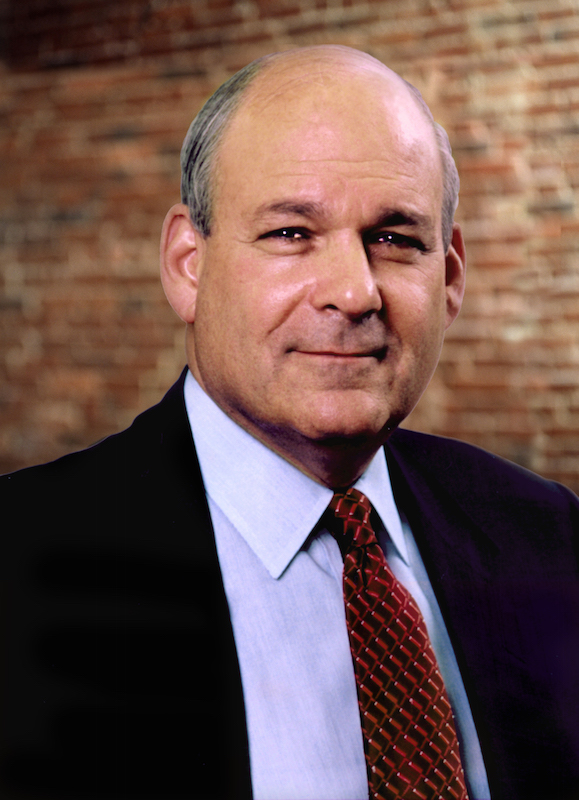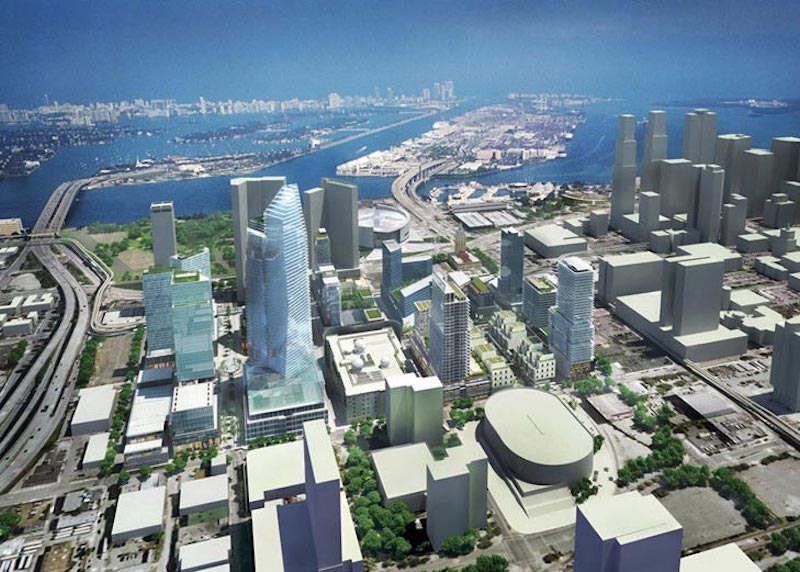Howard Elkus, FAIA, RIBA, LEED AP, cofounder of the Boston-based architectural firm Elkus Manfredi Architects, died on April 1 in Palm Beach, Fla., 11 days before his 79th birthday. The firm announced his passing on April 3 but did not disclose the cause of death or information about survivors.
“We grieve the loss of Howard as a co-founder of our firm, as a visionary architect, as a mentor, and as a friend. We extend our condolences to his wife, children, and immediate family,” the firm stated.
A graduate of Stanford University (B.S. mechanical engineering) and Harvard University (M.Arch with Distinction), Elkus began his five-decade-long career with the Walter Gropius-founded Architects Collaborative, where Elkus met his future partner David Manfredi. (The Architects Collaborative disbanded in 1995.)
In a statement, Manfredi referred to Elkus as “an extrordinary friend and business partner. He uniquely brought joy to every endeavor, made everyone he met feel special, and lived life fully every day.”

Howard Elkus, who cofounded the Boston firm Elkus Manfredi Architects with David Manfredi in 1988, died on April 1 at the age of 78. Image: Bruce Rogovin
His architectural and interior design work with Elkus Manfredi Architects ranged widely across myriad building typologies. In recent years, the firm has designed headquarters for New Balance, WS Development, and Blue Cross Blue Shield; as well as the Verb Hotel in Boston, and Linq Hotel & Casino (a reimagining of Caesar’s Imperial Palace) and City Hall in Las Vegas.
Other recent major projects Elkus was involved in include Miami Worldcenter, a redevelopment of 27 acres in downtown Miami that will expand the city’s central business district by between 12% and 15%, and create a vibrant walkable pedestrian environment. The first phase build-out includes three residential towers over 1 million sf of podium retail.
The firm also designed the podium retail component of the Hudson Yards project in New York that’s currently under construction. Elkus referred to HudsonYards as “the biggest mixed-use project in the United States, and one of the most impressive in the world.”
Elkus was the grandchild of Felix Kahn, one of the Master Builders of the West, and grandnephew of Albert Kahn, the foremost American industrial architect of his day. In a 2004 interview, Elkus told Visual Merchandising and Store Design (VMSD) that his first real design assignment was Copley Place, which in the mid 1980s was Boston’s largest urban mixed-use project.
He revealed during that interview that his inspiration for projects came from “the world out there. Like music, I get it from the simplest notes to a resounding orchestra. Nature does it for me and so, too, does man’s wondrous works, perhaps most of all the heroism of less-fortunate souls.”
Elkus saw Hudson Yards are part of a broader global urbanization, which he viewed as “wildly exciting and the potential is off the charts.” In a 2015 interview with Interior Design magazine, he said the “great question” of that movement continues to be “how do we maximize quality of life?”
Related Stories
Museums | Aug 11, 2010
Design guidelines for museums, archives, and art storage facilities
This column diagnoses the three most common moisture challenges with museums, archives, and art storage facilities and provides design guidance on how to avoid them.
| Aug 11, 2010
Broadway-style theater headed to Kentucky
One of Kentucky's largest performing arts venues should open in 2011—that's when construction is expected to wrap up on Eastern Kentucky University's Business & Technology Center for Performing Arts. The 93,000-sf Broadway-caliber theater will seat 2,000 audience members and have a 60×24-foot stage proscenium and a fly loft.
| Aug 11, 2010
Citizenship building in Texas targets LEED Silver
The Department of Homeland Security's new U.S. Citizenship and Immigration Services facility in Irving, Texas, was designed by 4240 Architecture and developed by JDL Castle Corporation. The focal point of the two-story, 56,000-sf building is the double-height, glass-walled Ceremony Room where new citizens take the oath.
| Aug 11, 2010
Carpenters' union helping build its own headquarters
The New England Regional Council of Carpenters headquarters in Dorchester, Mass., is taking shape within a 1940s industrial building. The Building Team of ADD Inc., RDK Engineers, Suffolk Construction, and the carpenters' Joint Apprenticeship Training Committee, is giving the old facility a modern makeover by converting the existing two-story structure into a three-story, 75,000-sf, LEED-certif...
| Aug 11, 2010
Utah research facility reflects Native American architecture
A $130 million research facility is being built at University of Utah's Salt Lake City campus. The James L. Sorenson Molecular Biotechnology Building—a USTAR Innovation Center—is being designed by the Atlanta office of Lord Aeck & Sargent, in association with Salt-Lake City-based Architectural Nexus.
| Aug 11, 2010
San Bernardino health center doubles in size
Temecula, Calif.-based EDGE was awarded the contract for California State University San Bernardino's health center renovation and expansion. The two-phase, $4 million project was designed by RSK Associates, San Francisco, and includes an 11,000-sf, tilt-up concrete expansion—which doubles the size of the facility—and site and infrastructure work.
| Aug 11, 2010
Goettsch Partners wins design competition for Soochow Securities HQ in China
Chicago-based Goettsch Partners has been selected to design the Soochow Securities Headquarters, the new office and stock exchange building for Soochow Securities Co. Ltd. The 21-story, 441,300-sf project includes 344,400 sf of office space, an 86,100-sf stock exchange, classrooms, and underground parking.
| Aug 11, 2010
New hospital expands Idaho healthcare options
Ascension Group Architects, Arlington, Texas, is designing a $150 million replacement hospital for Portneuf Medical Center in Pocatello, Idaho. An existing facility will be renovated as part of the project. The new six-story, 320-000-sf complex will house 187 beds, along with an intensive care unit, a cardiovascular care unit, pediatrics, psychiatry, surgical suites, rehabilitation clinic, and ...
| Aug 11, 2010
Colonnade fixes setback problem in Brooklyn condo project
The New York firm Scarano Architects was brought in by the developers of Olive Park condominiums in the Williamsburg section of Brooklyn to bring the facility up to code after frame out was completed. The architects designed colonnades along the building's perimeter to create the 15-foot setback required by the New York City Planning Commission.








